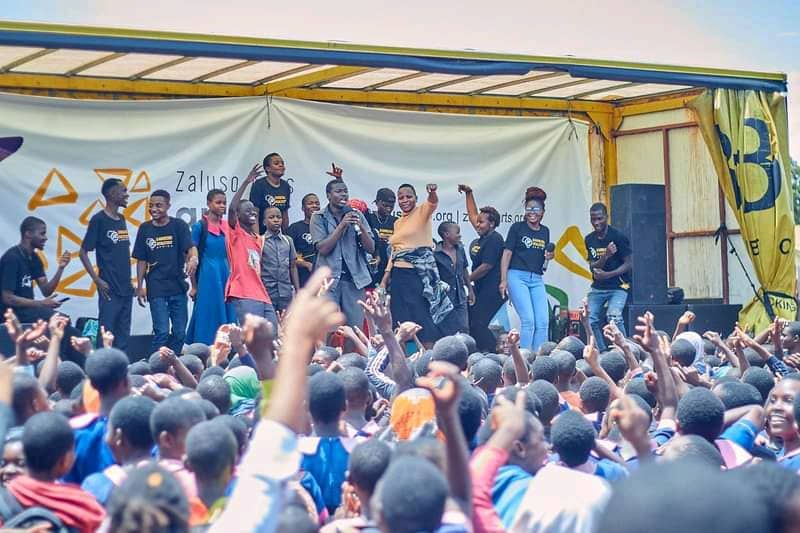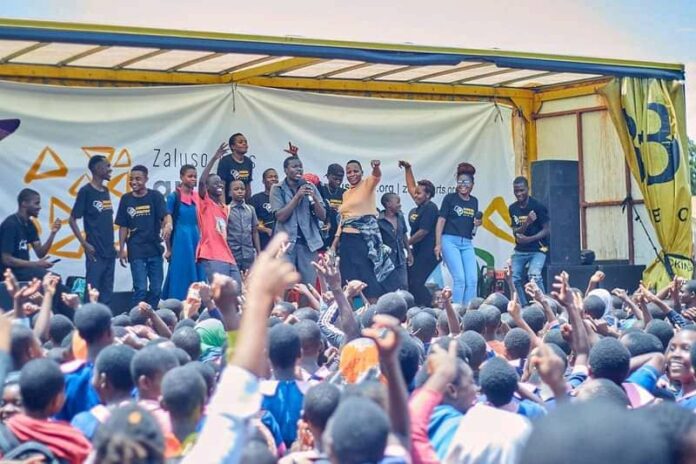By Burnett Munthali
A creative campaign targeting youth gambling has been piloted in three secondary schools located in Area 25, Lilongwe.
The initiative uses various forms of art to engage students on the potential harms associated with gambling and betting.
The workshops are being conducted in partnership with the University of Glasgow and the Malawi Epidemiology and Intervention Research Unit (MEIRU).
They aim to challenge the growing appeal of gambling among young people by promoting critical thinking and self-expression through music, poetry, drama, and visual arts.

According to the organizers, the strategy behind the programme is to speak to the students in a language and medium they understand and relate to.
In a statement, Zaluso Arts, one of the main implementers, said the programme is using lived experiences and storytelling to deliver the message in a way that resonates with the students.
This approach is meant to be not only informative but also therapeutic, creating a safe space for young people to reflect on the risks and consequences of gambling.
The statement further adds that the initiative is driven by recent research showing a growing prevalence of youth gambling in Malawi.
The research indicates that this troubling trend is often linked to factors such as poverty, unemployment, and exploitive advertising.
Some of the effects of youth gambling include school dropouts, mounting debt, and mental health issues.
In one particularly alarming case, the programme’s developers documented a reported suicide believed to have been influenced by gambling-related stress.
The secondary schools currently participating in the pilot programme are Lilongwe Demonstration Secondary School, Kabwabwa Secondary School, and Kalambo Secondary School, all in Area 25.
These schools were selected strategically based on vulnerability indicators and accessibility to betting kiosks within the community.
Organizers believe that by piloting the programme in these schools, they can measure its effectiveness and prepare for a broader rollout in other districts.
Students have shown strong interest in the programme, especially in the creative sessions that allow them to voice their concerns through personal expression.
Teachers have also praised the initiative for addressing an issue that is often neglected in mainstream education curricula.
Many educators expressed hope that the campaign will spark dialogue not only among students but also within families and local communities.
The growing accessibility of mobile phones and online betting platforms in Malawi has made it easier for young people to engage in gambling, often without parental knowledge.
As such, the campaign is seen as a timely intervention to equip youth with the tools to resist social and economic pressures driving them into gambling.
The partnership with the University of Glasgow also brings a research component that will help assess the impact of the intervention.
The long-term goal is to produce evidence that can inform national policies and education programmes on gambling prevention.
With arts at the centre of its strategy, this campaign stands out as a culturally sensitive and youth-friendly model that could shape the future of behavioral change communication in Malawi.
As the pilot phase continues, stakeholders are keenly watching to see how the lessons learned can be scaled up to benefit more schools and communities across the country.



